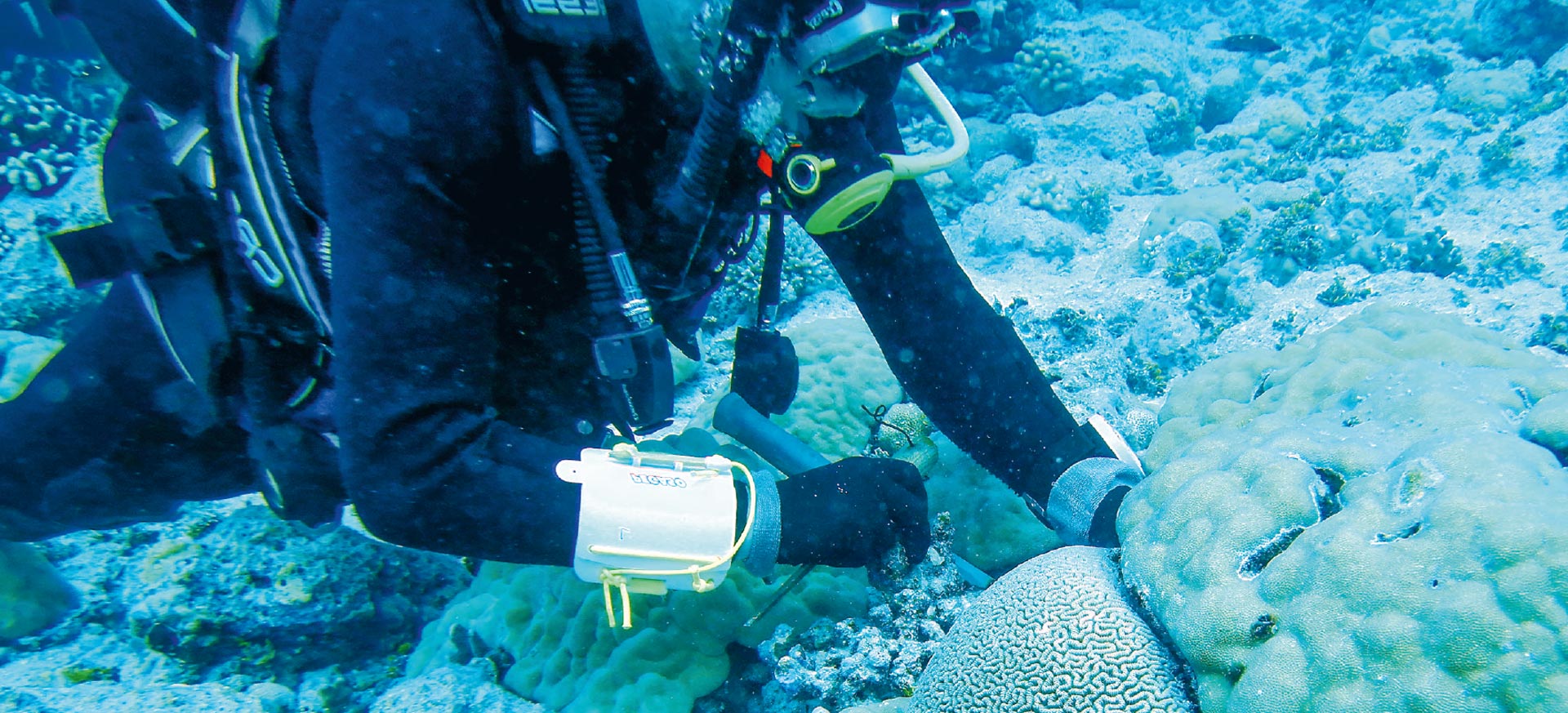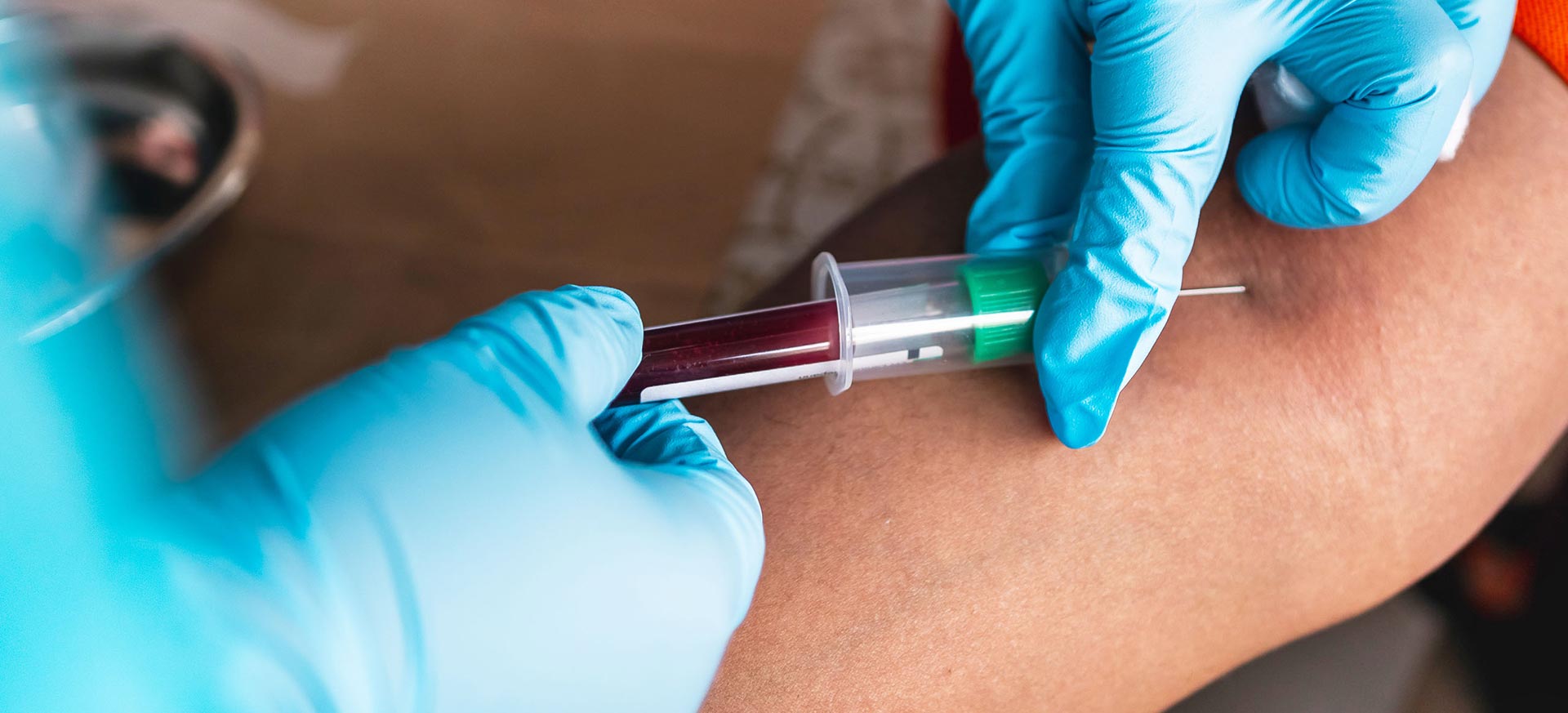Multiplex PCR
Travel health activism
OVID-19 grounded the journalists, filmmakers, professionals and other frequent travelers who look to London’s Fleet Street Clinic for their travel medicine needs. That’s when they began to flood into the clinic for COVID-19 tests. Richard Dawood turned to two of QIAGEN’s precision instruments to give them fast, accurate PCR results – and get them back to work.
Fleet Street has been the traditional home of British journalism since the 16th century. It’s from this storied strip that many journalists have been dispatched by their news agencies to report from countries around the world. That made it a natural place for Dr. Richard Dawood, a travel medicine specialist, and his wife, optometrist Dr. Gillian Whitby, to launch the Fleet Street Clinic, their travel medicine practice, in 1995.
Dawood has been fascinated by travel since childhood, traveling around the UK with his parents. But it was a trip he took as a young medical student in the 1970s that set him on a course for travel medicine. One particular event stuck with him, and that was a harrowing stay in a hotel in Kabul, Afghanistan. A group of travelers were stranded there, far too sick with amoebic dysentery to leave the country.
“When I approached the rest of my medical training, it was slightly through that lens,” Dawood says. As he continued to travel widely throughout Africa and Latin America, “I saw things that were deeply fascinating to me but my medical training left unexplained because they didn’t happen in London, Paris or New York. They happened in Ouagadougou or Kabul.”
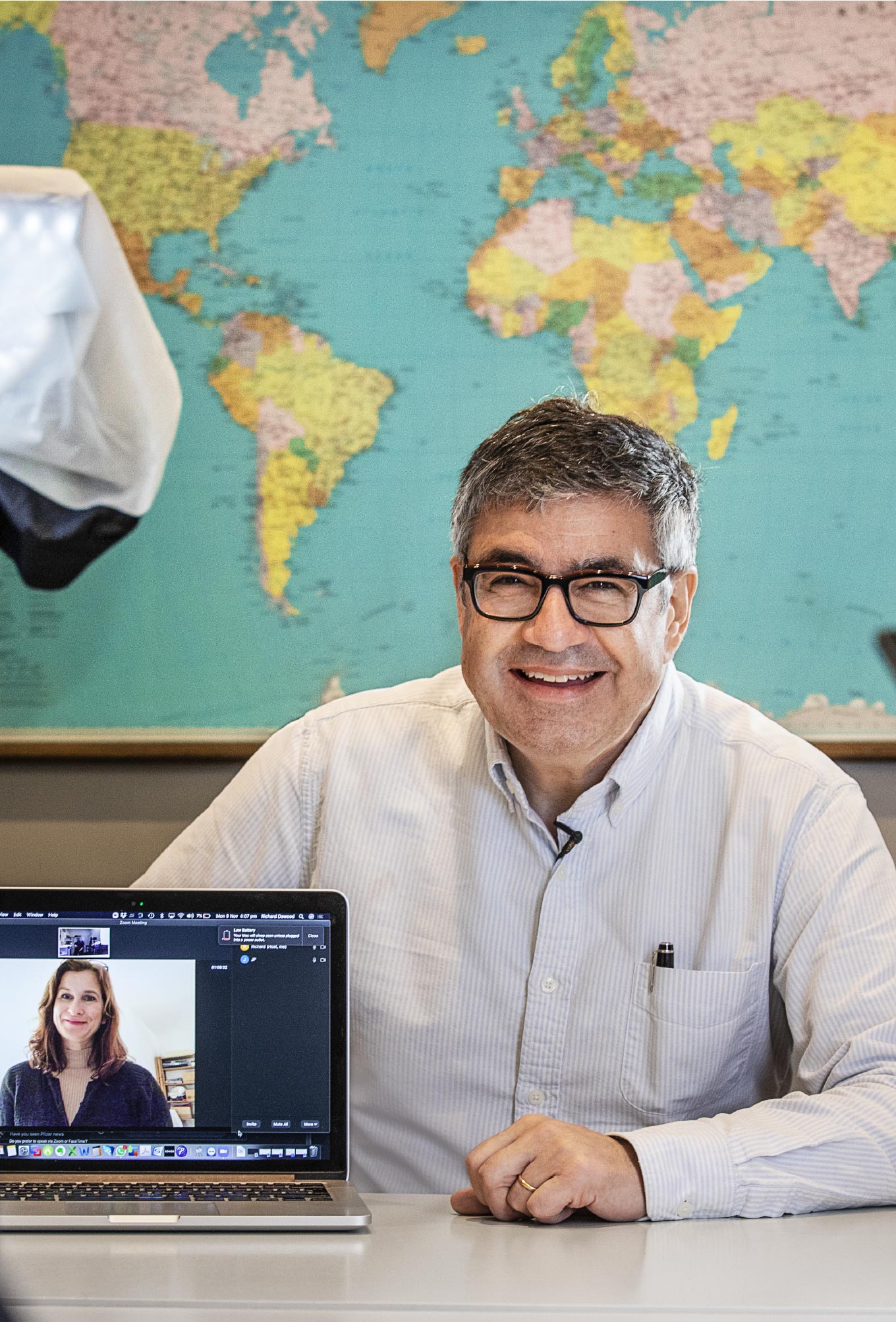
A passionate traveler who has explored more than 120 countries, Richard Dawood got his MD from the London School of Tropical Medicine. Dr. Dawood is a self-described “travel health activist” and author whose book, Traveller’s Health, has been published in 10 editions.
Dawood’s experience is what set the trajectory to open a clinic specialized for travelers. The need for their services became apparent soon after they opened, when the head of a TV team at Reuters news agency contacted the clinic in distress. One of his reporters had nearly died after contracting malaria while on assignment covering the Rwandan Civil War. It weighed on him. He wanted to know what he could do to protect his team in the future.
At the time, the standard practice was to send reporters abroad on short notice with little thought as to how the local environment might endanger their health. Dawood knew it wasn’t just political instability or war zones that journalists had to be wary of. Bacteria, viruses and parasites could also take a serious or deadly toll.
“To turn this around, we ensured that anyone joining Reuters’ TV unit who was eligible to be sent to a high-risk destination was properly prepped and vaccinated, and equipped and educated about travel health issues,” says Dawood. To make sure they were ready to travel on a moment’s notice, “We did this when they got the job, not when they got the assignment.”
That process eventually rolled out across the entire Reuters news agency TV unit. Other media outlets turned to Fleet Street Clinic as well.



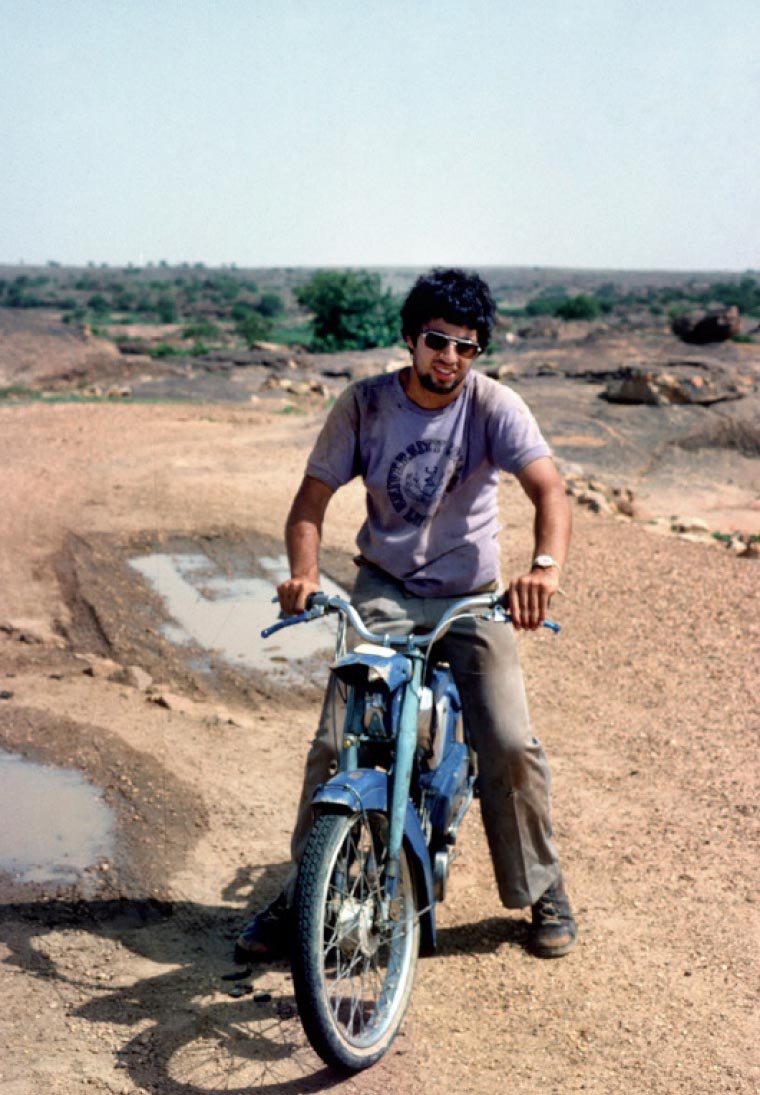
It was a trip Dawood took on the Hippie Trail as a university student in the 1970s that set him on a course for travel medicine. A medical kit in his bag, he flew to Istanbul, then set out with friends for Kathmandu, passing through Iran, Afghanistan, India and Pakistan before finally reaching Nepal.
A harrowing stay in a hotel in Kabul, Afghanistan, influenced the trajectory of his career. A group of travelers were stranded there, far too sick with amoebic dysentery to leave the country, which was unstable after a military coup. Luckily, he didn’t catch dysentery himself (though he would in the future, along with typhoid, malaria, skin parasites, and other conditions).
“When I approached the rest of my medical training, it was slightly through that lens,” Dawood says. As he continued to travel widely throughout Africa and Latin America, “I saw things that were deeply fascinating to me but my medical training left unexplained, because they didn’t happen in London, Paris or New York. They happened in Ouagadougou or Kabul.”
Product availability may differ from country to country based on regulations and approvals.
From journalists to COVID-19
Today, most of the newspapers have been replaced by management consultancies and investment firms, so international journalists are just some of the well-traveled patients that Fleet Street Clinic has helped protect during the past 25 years. Some patients live or work nearby, and others seek out the clinic from around the UK. Many travel to dangerous parts of the world, and some have complex travel-related health needs. Musicians and film set crews often tap their expertise. Dawood and members of his staff frequently go on tour with bands across the world or spend weeks on location on film sets, tending to crews that can number in the hundreds.
Essential to this work are fast and accurate diagnostics, including molecular testing. Fleet Street Clinic is equipped with two QIAGEN instruments – the NeuMoDx 96 system, which offers rapid high-throughput results for 96 samples simultaneously, and the QIAstat-Dx Analyzer, which together with the QIAstat-Dx Respiratory SARS-CoV-2 Panel, screens for 20+ targets at once, including SARS-CoV-2. Both systems return same-day results.
Rapid, comprehensive molecular COVID-19 PCR testing has enabled Fleet Street Clinic’s patients to know whether it’s safe for them to leave the country, work in the office, or sit in the classroom – and whether their symptoms are caused by COVID-19 or a different pathogen. It’s also enabled some destination-reliant clients, such as film production companies, to get back on set.
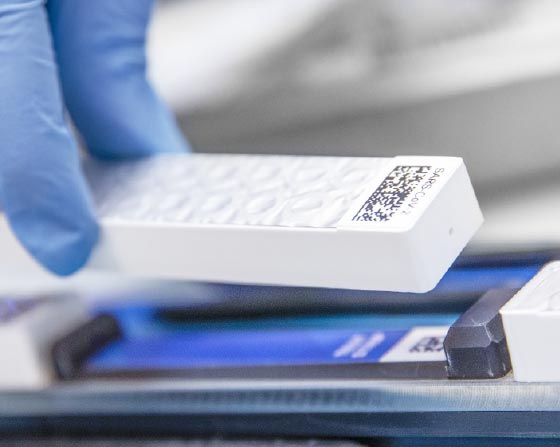
“The beauty of having our own equipment means we can actually deliver test results on the same day.”
Dr. Richard Dawood
COVID-19 in winter with QIAstat
In fall 2019, Dr. Dawood began using the QIAstat-Dx Respiratory Panel to rapidly diagnose patients. Winter was coming. Some Londoners were planning their winter holidays to warmer climes, and others were returning from trips abroad. And some of them were sick, but didn’t know what they were sick with. Getting same-day results about which pathogen ailed them allowed the clinic to begin targeted treatment almost immediately.
Then, in early January, journalists he knew in China contacted him about a novel pathogen in Wuhan. “They went in to obtain the kind of news footage that everybody saw of the early stages of the pandemic – the affected markets, the hospitals, the response,” he says.
They worried about getting sick. “All of the news gatherers involved in that process needed care, and advice on PPE and protecting their own health,” he says. “This was at a point in time when little was known about the virus.”
In March, COVID-19 began to tear through Europe. After QIAGEN released the QIAstat-Dx Respiratory SARS-CoV-2 Panel, Dawood used it to test his patients, getting results for up to four people at a time in around an hour.
The demand for PCR tests soon exploded. “We started looking for an instrument that had a much higher throughput, able to cope with perhaps hundreds of tests that might need to be done over a period of time, and for solutions that would allow us to have testing under our own direct control,” he says.
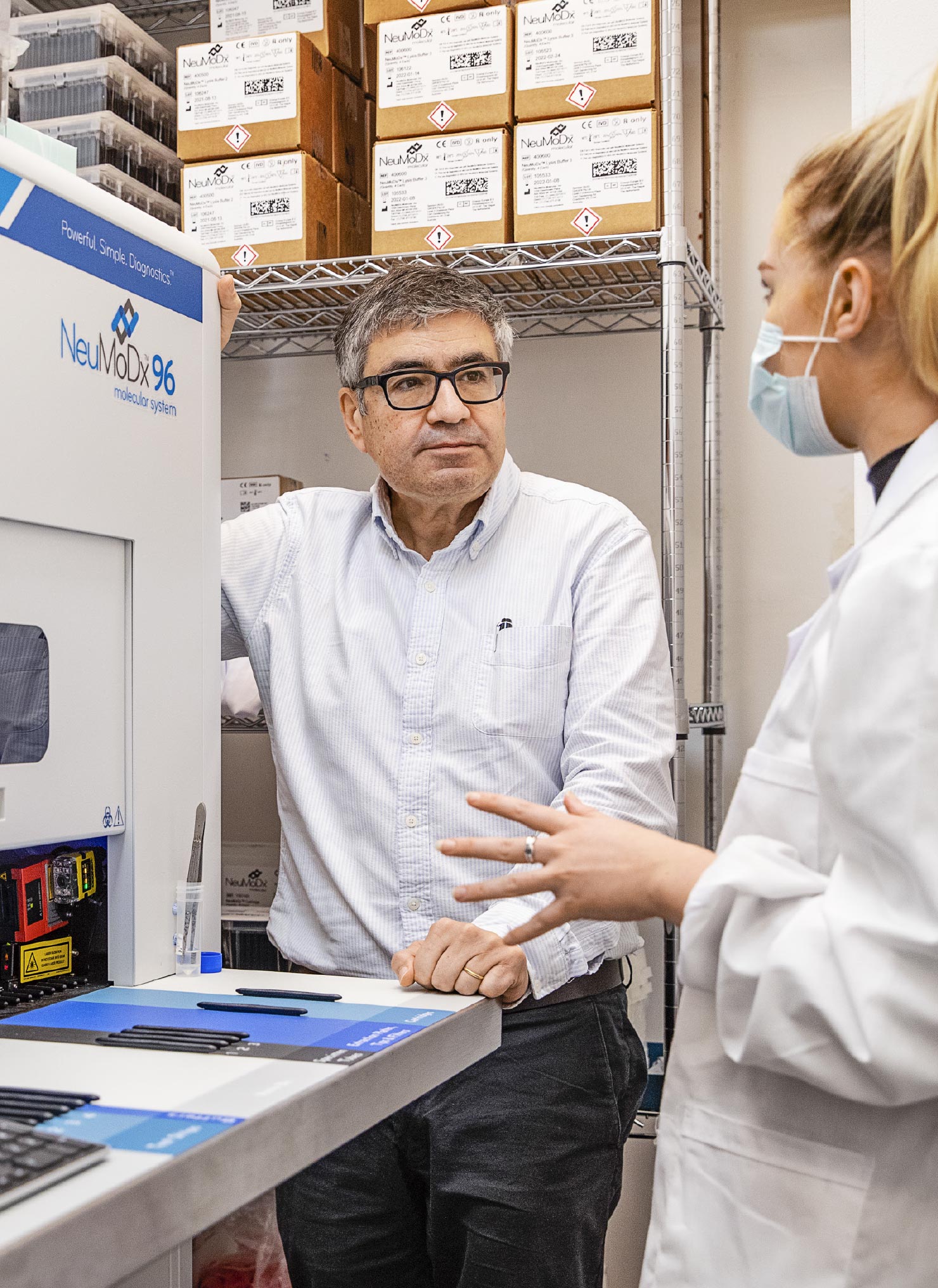
The NeuMoDx system is fully automated and can run up to 288 patient samples at once. It provides accurate and rapid test results in three simple steps that take around an hour. Users can load patient samples as the machine runs, helping to save time and materials used.
Available assays span multiple disease areas such as blood-borne viruses, transplant, sexual & reproductive health, respiratory, and laboratory-developed tests. CE-IVD assays include SARS-CoV-2, HPV, HIV, Flu A/B/RSV and many more. The SARS-CoV-2 assay is also authorized under FDA Emergency Use Authorization. Several assays are under development and include HSV I/II, VZV, and MG Resistance.
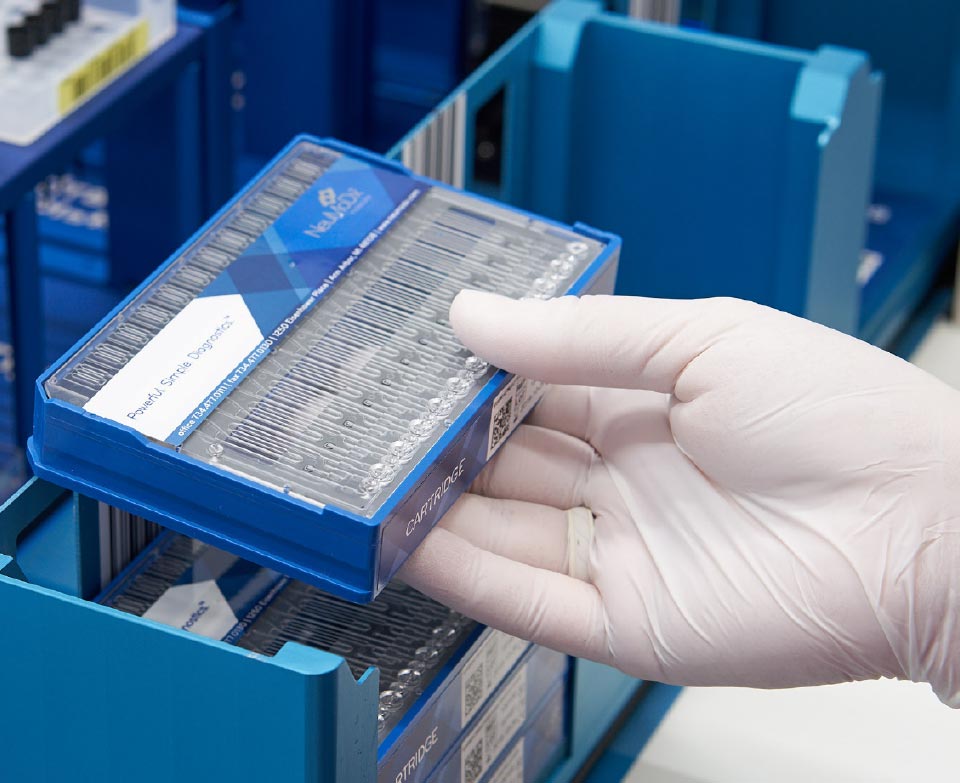
Dawood uses the high-throughput NeuMoDx for large sets of samples – to handle a busy day at the clinic or to test an entire film crew. He reserves the QIAstat-Dx Respiratory SARS-CoV-2 Panel for what he suspects are non-COVID-19 cases, allowing him to quickly pinpoint the infectious microbe – or eliminate the most likely candidates.
COVID-19 in summer with NeuMoDx
That’s when he ordered a NeuMoDx 96. “We like the NeuMoDx because we’re not a laboratory. It’s doctors and nurses doing the testing. And because it’s so self-contained, it seemed a good choice. Now we’re all trained up on its day-to-day use. It was actually fairly straightforward. The beauty of having our own equipment means that we can actually deliver test results on the same day.”
Beyond being capable of handling the testing demand at the clinic, the NeuMoDx system was also essential for allowing some of Fleet Street Clinic’s business clients to get back to work as the pandemic ebbed in the warmer months and the UK’s lockdown eased.
“The creative industries were very much in the front of the queue to get back to work, and so it was logical that we adapt this molecular testing service to their needs. One of the issues that arises on a film set is that you have many people working together in close proximity. You can’t really socially distance people who are appearing in a movie, and you really need a very rapid turnaround of results. And that was where the NeuMoDx really began to help. We could bring samples back, put them on the instrument, and get immediate results – and be able to reassure the people involved in the film production that all was well.”
Currently, the clinic is running about 100 COVID-19 tests per day, though that number spiked at over 150 before Christmas and the start of the UK’s winter lockdown. With new variants of SARS-CoV-2 emerging around the world, Dawood says a test to detect significant subtypes of the virus is on his wish list for the future.
“I think the world’s eyes have been opened to the possibilities. The value of fast, accurate diagnosis has really become clear.”
Dr. Richard Dawood
So far, the clinic has used the NeuMoDx only for COVID-19. “However,” Dawood says, “we are very interested in its potential use for other pathogens. I would love to see a much wider menu of tests brought into a point-of-care setting. I’d love to see molecular diagnostics for the full range of intestinal parasites, and for things like Zika.”
The pandemic may have ushered in a new era of molecular testing, he says. “I’m hoping that could be one of the longer-term benefits of the massive surge of molecular testing. I think the world’s eyes have been opened to the possibilities. The value of fast, accurate diagnosis has really become clear.”
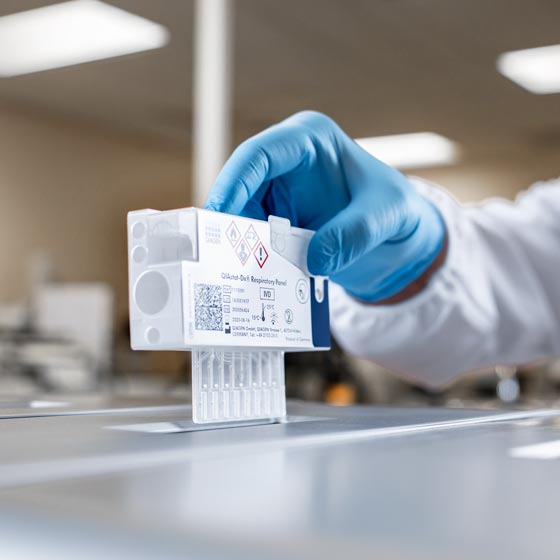
- Over 2,000 QIAstat-Dx syndromic testing instruments have been placed globally
- In addition to respiratory testing panels, there is an expanding menu of tests for use on the QIAstat-Dx platform
- ~$1.2 billion syndromic testing market and >15% CAGR
- QIAstat- Dx accounted for 4% of QIAGEN’s total 2020 sales.
Product availability may differ from country to country based on regulations and approvals.


